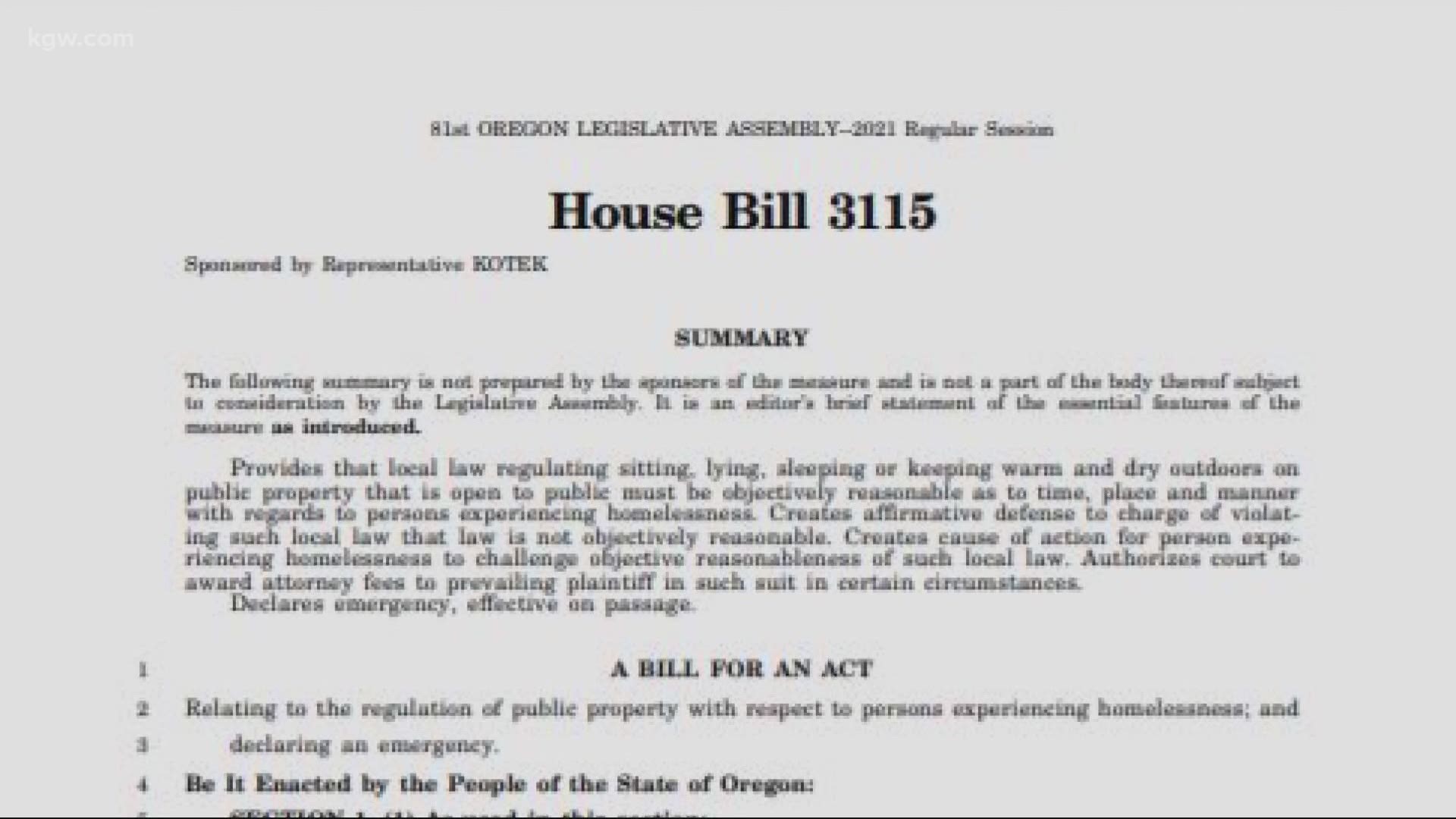PORTLAND, Ore. — Cities looking to ban homeless people from sitting or lying on sidewalks may soon have a new hurdle to clear, courtesy of lawmakers in Salem, and the timing of this bill is noteworthy given news in a major court case. Weeks into a packed legislative session, Oregon lawmakers are considering a bill that takes aim at "sit-lie" ordinances. That's what it's called when cities try to ban people from sitting or lying on the sidewalk. These attempts are often lightning rods for controversy and court challenges.
Portland has tried it and failed. Grants Pass recently did the same, but the big precedent comes from Boise, Idaho. Twelve years ago a group of homeless people sued the city for ticketing them for sleeping outside, even though Boise had a shortage of shelter beds. A judge in the 9th Circuit Court of Appeals ruled that qualified as cruel and unusual punishment and violated the Constitution.
On Monday, Oregon House Speaker Tina Kotek (D-Oregon) said House Bill 3115, first reported by Willamette Week, will largely force cities statewide to comply with that decision.
“If you can't justify moving folks along because there's not enough shelter, then you have to have a different standard for how you treat them, and from my perspective, that is more humanely,” Speaker Kotek said.
House Bill 3115 still has to go through committee hearings and multiple votes before it can be law. That said, the timing is noteworthy. Until this week, that case out of Boise, known as Martin v. Boise, was ongoing. But Monday, the city announced it was dropping its latest appeal. Per a settlement, officials are now pouring $1.3 million into opening new shelters.
“Often it seems that these issues have been coming up in the past 10, 15 years or so as smaller communities are starting to see more people experiencing homelessness on their streets,” said Joanne Zuhl, executive editor of Street Roots. The Portland newspaper has covered “sit-lie” ordinances in depth. She noted the Boise ruling and this Oregon bill could very well make these laws less prevalent.
But House Bill 3115 does leave room for interpretation. It demands cities be "objectively reasonable" when considering new laws aimed regulating camping or sleeping outside.
“One reason why these laws are so contentious is because of the disparity between what people define as reasonable,” Zuhl said. “And that perspective is weighted by whether or not you are experiencing or have experienced homelessness.”

